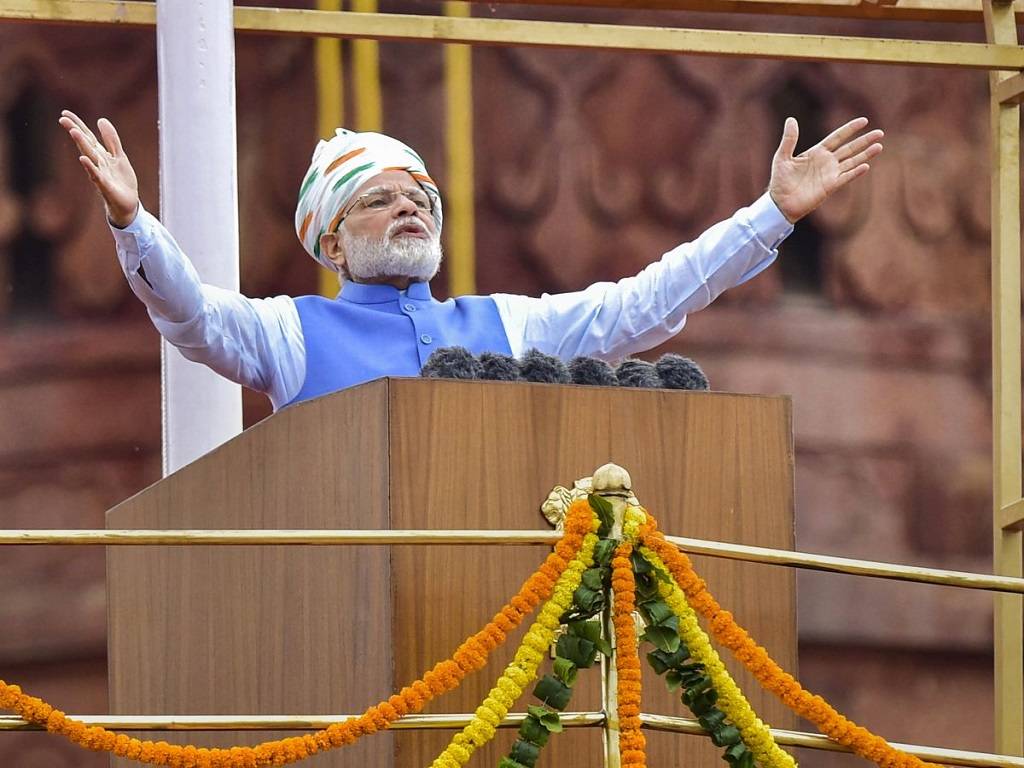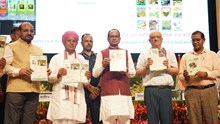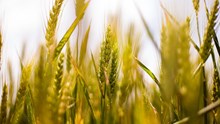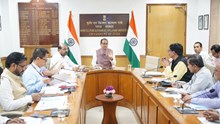
According to Prime Minister Narendra Modi, organic and natural farming have the potential to reduce costly fertilizer imports, making them an important step towards achieving India's Atma Nirbhar (self-sufficient).
The prime minister further stated that research and innovation were essential to finding solutions in every industry, including agriculture, which remains the primary means of livelihood. Nearly half of all Indians rely on agriculture for their income.
He claimed that cutting-edge innovation will promote overall development. He created a new slogan while stating that research and development needed a new drive.
He highlighted "Jai Jawan, Jai Kisan" as the previous prime minister Lal Bahadur Shastri's slogan, saying it was "still a great source of motivation." Later, Atal Bihari Vajpayee added the phrase "Jai Vigyaan" to it, and the nation gave primacy to it. Now, it's necessary to include "Jai Anusandhan" (research and innovation). Hail the soldier, farmer, scientist, and inventor with Jai Jawan, Jai Kisan, Jai Vigyaan, and Jai Anusandhan, Modi said.
The usage of chemical fertilizers must be reduced. However, chemical-free farming and natural farming can help Aatma Nirbhar Bharat, according to Modi, who also added that Atma Nirbhar India was "not only a government program" but rather a "collective national campaign."
“Today natural farming is a path to Atma Nirbharta. Natural farming and chemical-free farming can add to the strength of our country. Natural farming can bring down fertilizer costs. Chemical-free farming and organic farming is our duty,” Modi stated. Natural farming can be especially advantageous for small farmers, Prime Minister further added.
According to estimates from the sector, the Union government's expenditure on fertilizer subsidies for the current financial year could total 2.10 lakh crore due to rising commodities and oil prices due to the war in Ukraine. The amount spent on fertilizer subsidies will be at an all-time high. Nearly all of India's potassium chloride fertilizer needs are imported, although only around half of the country's yearly use of di-ammonium phosphate is imported.
To reduce the nation's heavy reliance on expensive edible oil imports, Modi has initiated a major program to expand palm-oil plantations in several states, particularly the Northeast.
India’s demand has made it the world’s largest importer of vegetable oils, a base ingredient for cooking most common dishes. Up to two-thirds of the nation's domestic demand is satisfied by imports.
The PM mentioned the nation's ethanol blending program when discussing the sugar business. "The 10% ethanol blend goal seemed to be a rather big goal. Our prior experience suggested that this might not be feasible, but the nation has already achieved this target before schedule.”
Modi said on June 5, 2021, that the target year for a 20% ethanol blend would be moved up by five years to 2025. To do this, the Union Food Ministry prepared a blueprint.
The initiative for blending ethanol is a significant part of India's self-reliance campaign. India will buy less oil if it mixes petrol with ethanol, which is generated from molasses, a byproduct of sugar production. Rice and maize can also be used to make ethanol. After the US and China, India is the world's third-largest oil consumer. In 2018-19 and 2019-20, it spent well over $100 billion on imported crude oil.
The prime minister also called for effective farming methods that conserve water. “It is the responsibility of the government to provide water to every farm. However, every farm has to go forward on the principle of ‘per drop more crop’.”
















